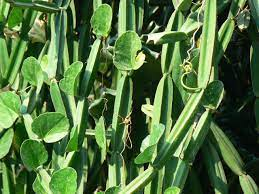CHAMOMILE (Matricaria chamomilla)
Chamomile is a medicinal plant that has been used for
centuries as a natural remedy for various health conditions. The plant belongs
to the Asteraceae family, and there are two main types of Chamomile: German
chamomile (Matricaria chamomilla) and Roman chamomile (Chamaemelum
nobile). Chamomile has a range of health benefits, and its uses range from
treating anxiety to reducing inflammation. In this article, we will explore the
various uses of chamomile in detail.
- Chamomile
for Anxiety
Chamomile has been found to have a calming effect on
the mind and body, making it an effective natural remedy for anxiety. Chamomile
contains compounds called apigenin and luteolin, which are believed to be
responsible for its anxiety-reducing properties. Studies have shown that
chamomile tea can help reduce symptoms of anxiety, such as restlessness,
irritability, and difficulty sleeping. Chamomile tea is also caffeine-free,
making it a good alternative to coffee or other caffeinated drinks, which can
worsen anxiety symptoms.
- Chamomile
for Insomnia
Chamomile has also been found to be an effective
natural remedy for insomnia, or difficulty sleeping. Chamomile contains
compounds that have a sedative effect on the body, making it easier to fall
asleep and stay asleep. Chamomile tea is often recommended for people who have
trouble sleeping, as it can help to promote relaxation and reduce stress.
Chamomile tea is also a safe and natural alternative to sleeping pills, which
can have side effects and may be habit-forming.
- Chamomile
for Digestive Problems
Chamomile has a long history of use as a natural
remedy for digestive problems. Chamomile contains compounds that have
anti-inflammatory and anti-spasmodic properties, making it effective for
treating conditions such as irritable bowel syndrome (IBS), indigestion, and
acid reflux. Chamomile tea can help to soothe the lining of the stomach and
reduce inflammation in the digestive tract, which can alleviate symptoms such
as bloating, cramping, and nausea.
- Chamomile
for Skin Conditions
Chamomile has been found to be effective in treating a
range of skin conditions, including eczema, psoriasis, and acne. Chamomile
contains compounds that have anti-inflammatory and anti-bacterial properties,
making it effective for reducing inflammation and killing bacteria on the skin.
Chamomile tea can be used topically as a wash or compress for skin conditions,
or it can be added to bathwater to soothe itchy or inflamed skin.
- Chamomile
for Menstrual Cramps
Chamomile has been found to be effective in reducing
menstrual cramps and other menstrual symptoms. Chamomile contains compounds
that have anti-inflammatory and anti-spasmodic properties, which can help to
relax the muscles of the uterus and reduce cramping. Chamomile tea can be drunk
throughout the menstrual cycle to help reduce cramps and other symptoms, such
as bloating and mood swings.
- Chamomile
for Allergies
Chamomile has been found to have anti-inflammatory
properties, making it effective for reducing allergy symptoms such as sneezing,
itching, and congestion. Chamomile tea can help to reduce inflammation in the
respiratory system and soothe irritated nasal passages. Chamomile tea can also
be used as a natural remedy for hay fever and other seasonal allergies.
In conclusion, chamomile is a versatile medicinal
plant that has a range of health benefits. Its uses range from treating anxiety
and insomnia to reducing inflammation and treating skin conditions. Chamomile
tea is a safe and natural alternative to conventional medications, and it can also
be used as a topical treatment for skin conditions. Chamomile is generally
considered safe when used in moderation, although people with allergies to
plants in the Asteraceae family should exercise caution. Overall, chamomile is a natural, effective, and safe remedy for a range of health conditions, and it
is a valuable addition to any natural medicine cabinet.
HAPPY BLOGGING!!!
DEEPIKA KRISHNAMOORTHY
A RESEARCH SCHOLAR




Comments
Post a Comment